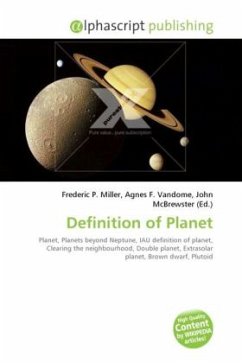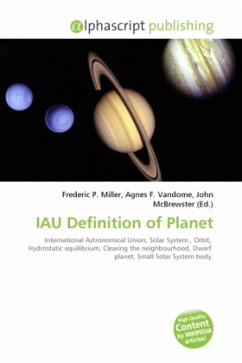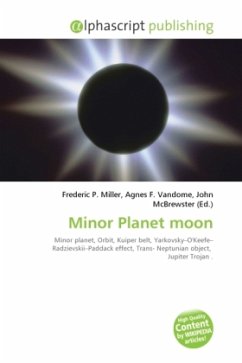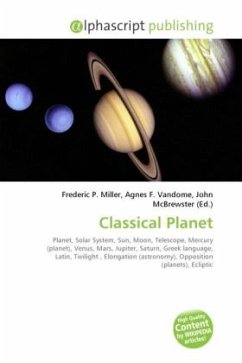High Quality Content by WIKIPEDIA articles! From its beginnings denoting the "wandering stars" of the classical world, the definition of "planet" has been fraught with ambiguity. In its long life, the word has meant many different things, often simultaneously. Over the millennia, use of the term was never strict and its meaning has twisted and blurred to include or exclude a variety of different objects, from the Sun and the Moon to satellites and asteroids. As knowledge of the universe grew, the word "planet" grew and changed with it, casting off old meanings and adopting new ones, though never arriving at a single, concrete definition. By the end of the 19th century, the word "planet" had, without being defined, settled into a comfortable working term. It only applied to objects in the Solar System; a number small enough that any differences could be dealt with on an individual basis. After 1992 however, astronomers began to discover many additional objects beyond the orbit of Neptune, as well as hundreds of objects orbiting other stars. These discoveries not only increased the number of potential planets, but also expanded their variety and peculiarity.








